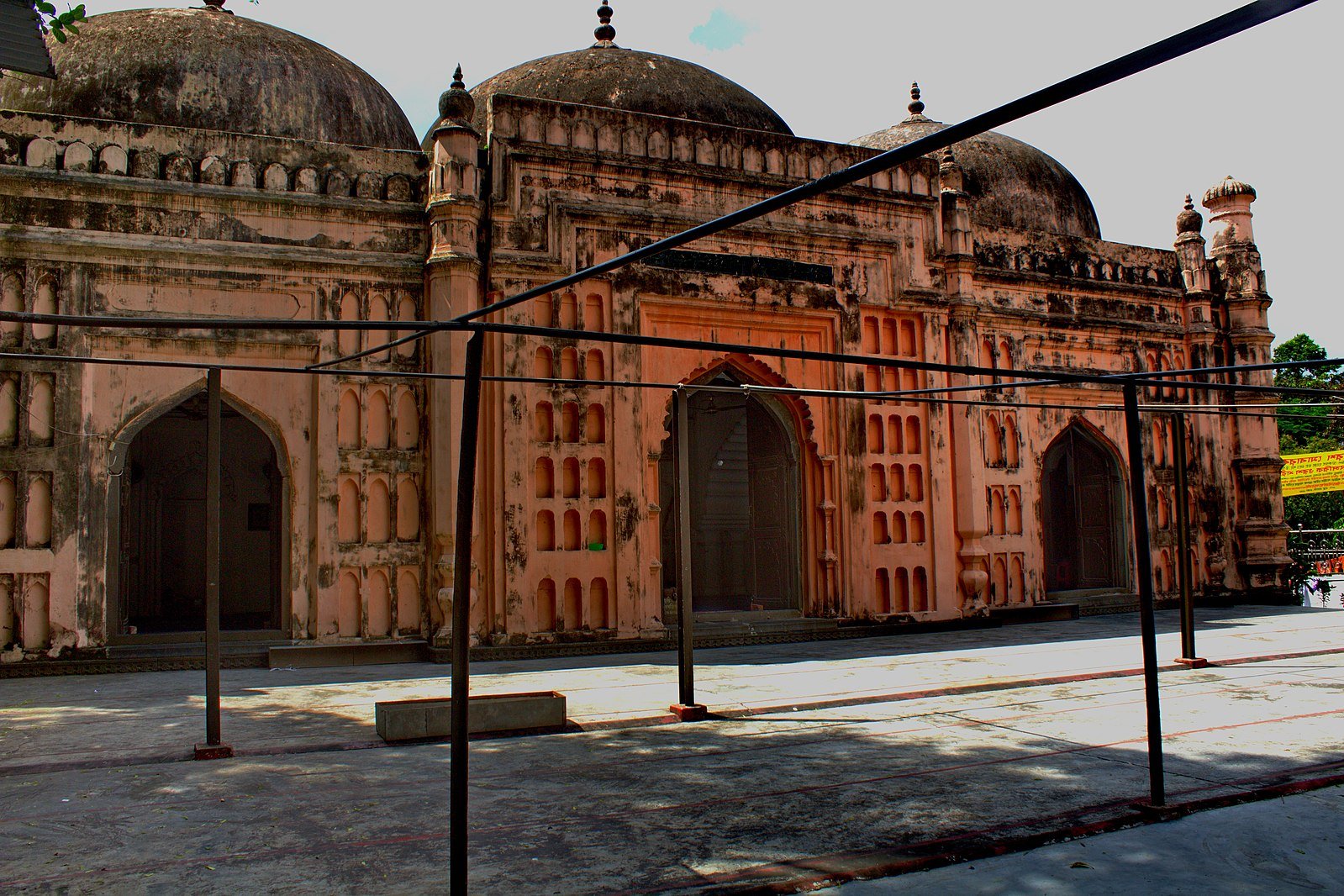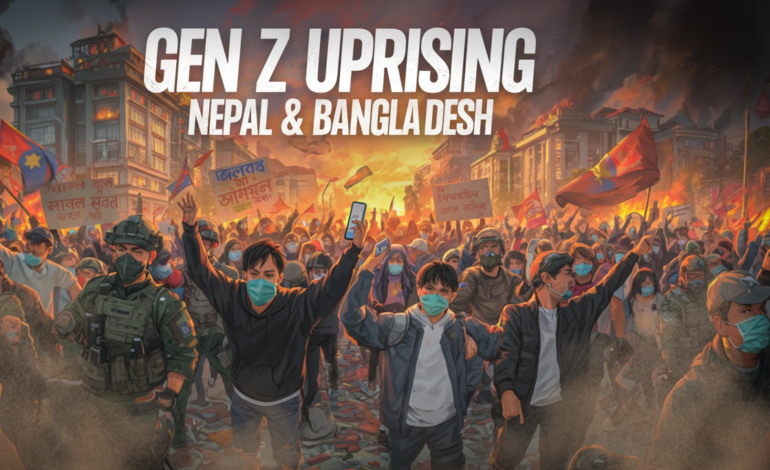Echoes of Bangladesh in Nepal: Gen Z Protests Shake the Himalayan Republic
South Asia has entered a new era of popular uprisings. In 2022, Sri Lanka’s Aragalaya protests toppled a president. In 2024, Bangladesh witnessed a historic Gen Z Uprising that ended decades of authoritarian rule. Pakistan remains mired in unrest and political stalemate. And now, in 2025, Nepal is in the global spotlight.
Mass protests have swept through Kathmandu, Pokhara, Biratnagar, and other cities. What began as outrage over digital censorship has become the country’s most significant youth-led movement in decades drawing striking parallels with Bangladesh’s 2024 revolution.
The Trigger: A Social Media Blackout
The spark was a controversial government order to ban over two dozen social media platforms. Overnight, Facebook, Instagram, WhatsApp, YouTube, and X were blocked. Only TikTok remained after agreeing to government regulations. Officials claimed this was to curb hate speech and online abuse.
For Nepal’s Gen Z, it was blatant censorship. These platforms were more than entertainment. They were spaces for free expression, organizing, and exposing corruption. Outrage spread rapidly. Small gatherings became massive marches, with protesters breaking barricades, torching government vehicles, and even storming parliament grounds.
The government responded with force:
- Live ammunition and rubber bullets
- Heavy tear gas deployment
- Mass arrests and curfews
Hospitals quickly overflowed with the injured. Yet, far from weakening the protests, repression only intensified them.
The Deeper Wound: Corruption and Failed Governance
The blackout ignited the protests, but corruption gave them fuel. Nepal’s political system has long been plagued by instability and scandals. Governments collapse over petty rivalries, while corruption remains constant.
2025 has already seen:
- A cabinet minister resign over bribery
- A former prime minister face criminal charges
- Scandals in aviation, telecom, immigration, gold smuggling, and refugee resettlement
Ordinary citizens see elites escape accountability while lower-level officials take the fall. Online, hashtags like #NepoKids mocked the luxurious lifestyles of politicians’ children, with one viral comparison capturing the anger:
“Their kids return with Gucci bags, ours return in coffins.”
The Gen Z Uprising: From Memes to Mass Mobilization
Gen Z is Nepal’s largest demographic, a generation raised on smartphones, global connectivity, and a constant stream of information. Yet behind the screens, many face bleak realities, unemployment, shrinking opportunities at home, and the dangerous uncertainties of migrant labor abroad. What began as frustration has now transformed into defiance. This generation has weaponized humor and creativity, spreading biting memes and viral campaigns to expose corruption, mobilizing rallies through encrypted chats and grassroots networks, and turning social media hashtags into protest chants and placards on the streets. Their activism is strikingly different from past movements because it is leaderless and collective. Young Nepalis no longer trust political parties, which they see as symbols of greed and opportunism, nor do they aspire to replicate those power structures. Instead, their uprising is conscience-driven, powered by a desire for dignity, accountability, and a future that feels theirs to claim. This is not just a protest, it is a cultural awakening, where memes meet movements and where defiance is written in both pixels and pavement.
Regional Echoes: Bangladesh as a Gen Z Uprising Inspiration
The parallels between Nepal’s 2025 protests and Bangladesh’s 2024 youth uprising are striking and impossible to ignore. Both movements were led by students and young people who refused to accept the failures of an older political order. Rejecting traditional party structures and charismatic figureheads, they organized leaderless, collective campaigns that thrived on digital creativity and grassroots energy. In both countries, social media became more than a tool—it was a weapon of resistance, used to expose corruption, mobilize gatherings, and amplify voices the state tried to silence. Ironically, government crackdowns and censorship only strengthened the determination of protesters, making the movements broader and bolder. Many Nepali activists openly acknowledge that the courage shown by Bangladeshi students lit a spark for their own struggle, turning Dhaka’s chants into Kathmandu’s echoes. Taken together, these uprisings suggest that what is happening is no longer confined within national borders.It is becoming a regional pattern, where South Asia’s Gen Z is demanding dignity, accountability, and a future free from the chains of corruption and authoritarianism.
Nepal at a Crossroads
Prime Minister K. P. Sharma Oli’s government now stands at a historic crossroads, facing two starkly different paths. One option is to double down on censorship, repression, and police crackdowns.An approach that may temporarily silence dissent but risks pushing an entire generation further into anger and alienation. The other path is far more difficult but ultimately more rewarding: opening genuine dialogue with the youth, restoring digital freedoms, and addressing corruption with real reforms instead of empty promises. The stakes are high. How the government chooses to respond will decide whether September 2025 is remembered as just another episode of political unrest or as the turning point toward a new, more accountable political order. In the eyes of many Nepalis, this is not simply a test of one leader’s resolve but a defining moment for the nation’s democracy itself.
The Bigger Picture
Across South Asia, one pattern is clear: youth are rising against failed systems. In Sri Lanka, in Bangladesh, and now in Nepal, young people have turned social media into a weapon of accountability and protest. States that try to crush these voices discover that repression only fuels rebellion.
The old elite can no longer ignore the rumble at their gates. A new generation is demanding to be heard and they have no intention of going back to silence.
Global Implications and the Road Ahead
Nepal’s unrest is not only a domestic crisis but also a global concern. The country’s fragile economy relies heavily on remittances and tourism, both of which are threatened by instability. Foreign investors are watching closely, while India and China, Nepal’s two powerful neighbors, fear spillover effects that could disrupt trade, migration, and security. For the international community, Nepal is now a test case: can young citizens in a fragile democracy push for reform without triggering prolonged chaos? The outcome will shape not only Nepal’s trajectory but also the future of youth-led movements across South Asia and beyond.
South Asia’s Gen Z Uprising: A New Reality
From Sri Lanka to Bangladesh to Nepal, one reality is clear: youth are no longer waiting for reforms from above—they’re demanding change now. The Gen Z Uprising is redefining activism, turning social media into a powerful engine of organization, accountability, and rebellion.
Governments that attempt to silence these digital natives face a hard truth: repression only strengthens their resolve. The old elites can no longer ignore the rising generation knocking at their gates. And this generation, driven by the Gen Z Uprising, has no intention of returning to silence.








